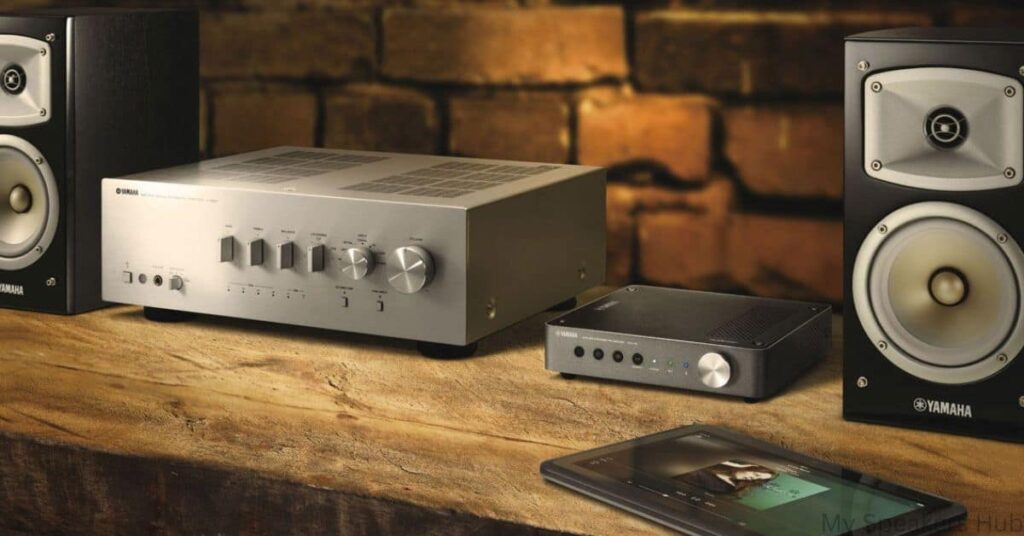No, not all speakers will work with every receiver. Each speaker has its own set of specifications that must be matched with a receiver that has corresponding capabilities. For example, a speaker may require a certain amount of power that can only be provided by a receiver with a certain wattage output. Additionally, the receiver must have the right number and type of input jacks to connect to the speaker.

Why you should choose the right speakers for your receiver
When choosing speakers for your receiver, it is important to consider the size of the room, the type of music you enjoy, and the power of the receiver. Room size will dictate how much power you need from your receiver, as well as the size of the speakers. The type of music you enjoy will impact the type of speaker you need. If you enjoy bass-heavy music, for example, you will need a subwoofer. The power of your receiver will also dictate the type of speaker you need. If you have a powerful receiver, you will need speakers that can handle that power.
How to pick the right speakers for your receiver
When choosing speakers, you should always match the impedance of the speaker to the receiver. If the impedance is too low, the speaker will not be able to handle the power from the receiver. If the impedance is too high, the speaker will not be able to reproduce the sound accurately. You should also consider the size of the speaker. The larger the speaker, the more bass it will be able to produce.
The benefits of having matching speakers and receiver
There are many benefits of having matching speakers and receiver. One benefit is that it creates a more seamless and immersive audio experience. Another benefit is that it can improve the sound quality of your system. Additionally, it can make your system more efficient and easier to set up.
The best speakers to complement your receiver
The best speakers to complement your receiver are those that have a wide frequency response and can reproduce sound accurately at high volumes. They should also be able to handle the power output of your receiver.
How to get the most out of your receiver and speakers
There are a few key things you can do to get the most out of your receiver and speakers. First, make sure that your receiver and speakers are properly matched. Second, set your receiver and speakers up in the correct configuration. Third, make sure that your receiver and speakers are properly tuned. Fourth, make sure that your receiver and speakers are properly positioned. Fifth, make sure that your receiver and speakers are properly wired. Sixth, make sure that your receiver and speakers are properly ventilated. Seventh, make sure that your receiver and speakers are properly protected from power surges. Eighth, make sure that your receiver and speakers are properly cleaned.
The ultimate guide to choosing the right receiver and speakers
There are many factors to consider when choosing a receiver and speakers. The most important factor is the type of receiver and speakers that will best fit your needs. The next factor to consider is the price. You want to make sure you are getting the best value for your money. The last factor to consider is the size of the receiver and speakers. You want to make sure they will fit in the space you have available.

Frequently asked questions[FAQs]
Will any speakers work with any receiver?
No, not all speakers are compatible with all receivers. You will need to check the specifications of both your speakers and receiver to ensure compatibility.
What factors do I need to consider when choosing a receiver?
There are a few factors you need to consider when choosing a receiver, such as:
- The number of channels you need
- The power output
- The input/output connections
- The size
- The price
How do I know if my speakers are compatible with my receiver?
The best way to know if your speakers are compatible with your receiver is to check the specifications of both. All compatible receivers will have specifications that match up with your speakers.
What are the consequences of using incompatible speakers with my receiver?
If you use incompatible speakers with your receiver, you may damage your receiver or speakers. Incompatible speakers can also lead to poorer sound quality.
Can I use multiple receivers with my speakers?
No, you should only use one receiver with your speakers. Using multiple receivers can damage your speakers.
Do I need to match the power output of my receiver to my speakers?
No, you do not need to match the power output of your receiver to your speakers. However, using a receiver with too much power for your speakers can damage them.
Can I use my receiver with multiple speakers?
Yes, you can use your receiver with multiple speakers. However, you will need to consider the impedance of your speakers when choosing a receiver.
What is impedance?
Impedance is a measure of electrical resistance. It is important to consider impedance when choosing a receiver because mismatched impedance can damage your speakers.
Conclusion
There is no one-size-fits-all answer to this question, as the compatibility of speakers and receivers will vary depending on the make and model of each. However, in general, most speakers will work with most receivers, so long as they are properly matched. It is always best to consult with a professional or do your own research to be sure that your particular setup will be compatible.


